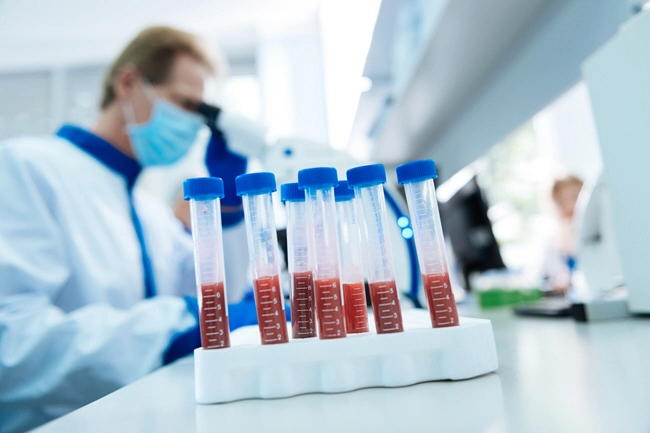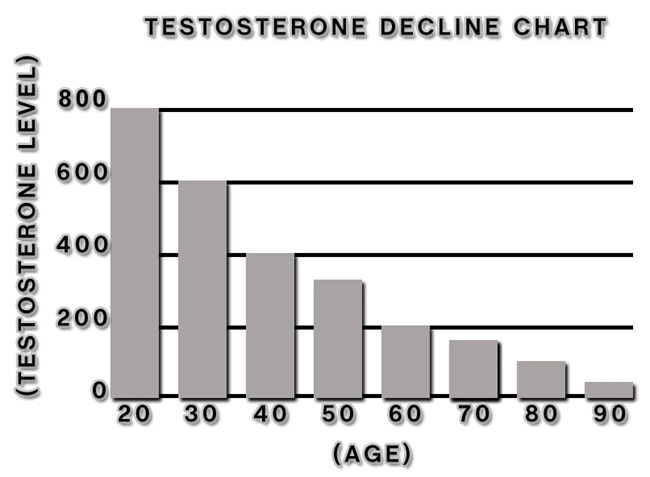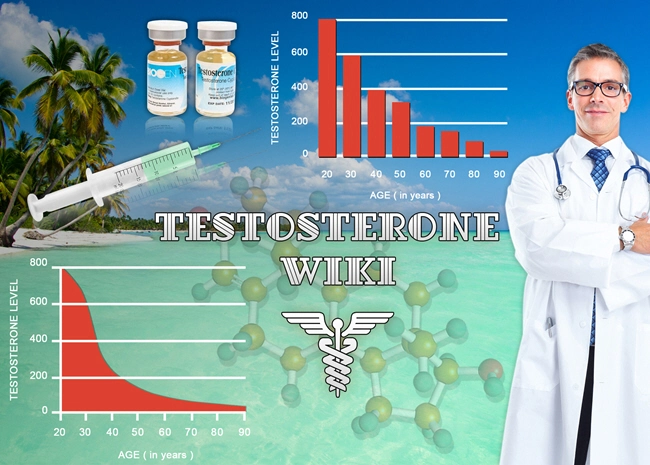
Video Link: https://vimeo.com/286856085
Video Download: Protein The Facts You Need To Know Part 1
Video Stream: Protein The Facts You Need To Know Part 1
Video Link: https://vimeo.com/286856321
Video Download: Protein The Facts You Need To Know Part 2
Video Stream: Protein The Facts You Need To Know Part 2
Testosterone Replacement Therapy (TRT) delivers many benefits. Two of the main benefits of TRT are increased energy and renewed physical fitness. This fitness boost is often due to the increased stamina that testosterone produces that gives users the drive to get back to the gym.
Also, our clinics employ a holistic approach to hormone restoration, and that includes nutrition, especially protein.
Protein. It’s known as a building block...one of the most crucial building blocks in the body. It’s essential for life. Bodybuilders and strength athletes swear by it.

Any eating plan includes the protein building block. Yet few other well-known nutrients have so much confusion continually swirling about them. For example:
- There are different types of protein. Which ones are the best? And what is the best way to take them?
- Is there a right time to take them?
- How much protein can you absorb at one time?
- What are “complete proteins”? How do they differ from “incomplete” proteins?
- Does protein help to burn more calories than fats or carbohydrates, and help with weight loss? If so, why?
- How much protein is recommended daily?
- Can you consume too much protein? Or too little?
These are the most common questions concerning protein. The good news is that the answers are not too complicated even though at first glance, they seem to be. To get going, the first question is, “what is protein”?
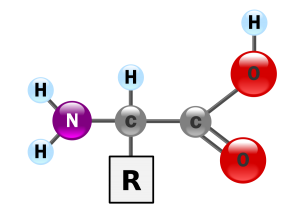 The scientific definition of protein is any of a class of nitrogenous organic compounds that consist of large molecules composed of one or more long chains of amino acids and are an essential part of all living organisms, especially as structural components of body tissues such as muscle, hair, collagen, etc., and as enzymes and antibodies.
The scientific definition of protein is any of a class of nitrogenous organic compounds that consist of large molecules composed of one or more long chains of amino acids and are an essential part of all living organisms, especially as structural components of body tissues such as muscle, hair, collagen, etc., and as enzymes and antibodies.
Bodybuilders have a far more straightforward definition: “The more protein you intake, the more you’ll grow.” Protein is something bodybuilders take seriously...very seriously. Vegetarians have a different take on protein.
They are often asked where they get their protein, and their answer is usually a long the lines of “humans don’t require as much protein as commonly thought, and what we do need is easy to get from vegetables (especially greens), nuts, soy, beans, and grains.”
Both these groups (and everyone else) require protein for building and repairing our tissues, giving us strength and energy, assisting digestion, and a wide array of other vital bodily functions.
So there is universal agreement that at least some amount of protein is required for good health. Now the question is how to get it? Beef, wild game (Bison, Venison), pork, seafood, eggs, milk, cottage cheese, Swiss cheese, poultry (turkey and chicken), peanut butter, lentils, nuts and seeds, vegetables (spinach, peas,), quinoa, amaranth, and soy are all sources of protein derived from food.
Additionally, many athletes and fitness buffs feed their need for additional protein through supplemental protein powders taken in the form of shakes.
The Difference Between Complete and Incomplete Proteins
Total proteins consist of all the essential amino acids that the body requires daily. Incomplete proteins contain only some of the critical amino acids.
Protein derived from animals (meat, fish, and dairy) is considered a complete protein. Individual plant and grain-based proteins (quinoa, amaranth, and soy) are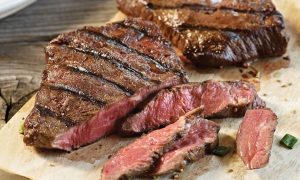 considered complete. Other plant-based proteins are deemed incomplete since they provide us with some but not all essential amino acids.
considered complete. Other plant-based proteins are deemed incomplete since they provide us with some but not all essential amino acids.
However, for vegetarians, all is not lost. By combining specific incomplete proteins -- for example, rice and beans, or peanut butter and whole-grain bread -- they can consume complete proteins that are meatless and dairy-free.
Types of Proteins
There are three general types or forms of protein: Whey, Casein, Milk, and Soy. There are also Isolates (quicker absorbing proteins), egg protein, and hydrolysate (highly absorbable peptides).
We will discuss all protein types in the section below: When to consume protein. But the first three mentioned are what we will mainly be concerned with. Keep these three in mind -- their different rates of absorption are significant.
Here’s why protein is so Important for weight-Loss

Recent studies have confirmed that protein can indeed speed up weight loss in both men and women...at least TWICE AS FAST! How could this be?
The reason is not all that complicated. The key is the thermic effect of food (TEF). In plain English, this means the number of calories needed to digest and process food.
To put it another way, TEF measures how much energy is used up in the process of metabolizing what we eat. Here’s the key. Fat is the lowest nutrient on the thermal burn scale; the body only uses five calories to metabolize 100 grams of fat.
Carbohydrates are next up on the scale; our body expends 15 calories to metabolize 100 carb calories. Protein, however, is off the chart! It requires a whopping 35 calories for every 100 calories of protein intake for metabolism.
This is why diets that are high-fat and high carb spell DISASTER. Let’s reduce these numbers to percentages and fractions. Protein burns up more than twice the amount of carbs and a mind-blowing SEVEN TIMES the number of fats! This is why protein is a calorie-incinerating furnace. When your diet is loaded with protein, you can consume extra calories “on the house.”
Here’s an example. Assume that your daily calorie intake is 2,000, and 1,000 of those calories are derived from protein. In effect, since your body has to burn 350 calories to metabolize the 1,000 grams of protein, your total calorie intake is almost magically reduced to 1,650! Protein is the “King of Thermogenesis,” i.e., fat-burning.
How Much protein can be absorbed per meal?
This is a question that seems to pop up continually. Bodybuilders have long insisted that there is a limit as to how much protein can go to work to build muscle immediately after consumption.
Some studies claimed that 30 grams were the limit, while others said 40, and still, others said 50. Since traditional bodybuilding knowledge is that more is better in everything, including protein intake, many bodybuilders are told to consume 300 to 400 grams of protein daily. Even with a 50-gram upper limit, that’s 8 to 10 meals, and protein shakes daily.
For the overwhelming majority of people, this is difficult, if not impossible, to accomplish. However, as usual, things are not that clear-cut. For one thing, 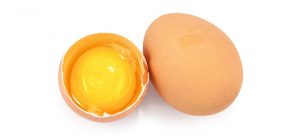 muscle building is not protein’s only function.
muscle building is not protein’s only function.
Protein breaks down into amino acids, which then build hormones, enzymes, strengthen our immune systems, and move and store molecules. These activities occur at different times.
This calls into question the several protein meals a day requirement. Also, even among bodybuilders, there is no agreed-upon consensus. Most agree that you need to experiment and monitor the results.
There is a host of additional factors involved in protein absorption. Age, activity level, your musculature, and your level of hormones, especially IGF-1. If all of this weren’t confusing enough, the type of protein you ingest enters into the equation.
Whey protein is absorbed in approximately 8-10 grams per hour. Casein has an absorption rate of 6.1 grams per hour, soy is 3.9 grams per hour, and a cooked egg is 2.9 grams per hour. The thing to remember is that the type of protein you’re taking figures into the absorption rate.
How Much Protein is Recommended daily?
Here again, we are all across the board. The DRI (Dietary Reference Intake) is 0.8 grams of protein per kilogram of body weight or 0.36 grams per pound. This amounts to 56 grams per day for the average sedentary man and 46 grams per day for the average sedentary woman.
However, in the opinion of most researchers, these meager amounts are woefully inadequate. As was mentioned earlier, protein is vital to any weight-loss effort. Knowing this, why sell yourself short and make the already difficult task of losing weight even more challenging?
Most studies have concluded that the optimum amount of protein should be around 30%. This translates into a daily intake of 150 grams for a dieter on a 2,000 calorie-a-day diet.
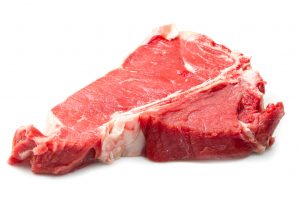
This can be calculated by multiplying your calorie intake by 0.075. The above numbers answer the question of “can I consume too small amounts of protein”? Conversely, you can consume too much protein.
The results are weight gain, usually in the form of unwanted blubber, kidney problems, dehydration, and feeling miserable. There is no hard and fast data to determine precisely how much protein is too much.
As discussed earlier, there are the same factors to consider, such as your age, musculature, hormones, and physical activity. The key is to be aware of the symptoms of too much protein and dial it back if you are experiencing any or all of them.
As always, you need to experiment and monitor your body’s feedback to find the exact amount that is neither too much nor too little.
When to Consume Protein
You can’t go wrong by taking protein immediately following a grueling workout. You have just attacked and torn down your muscle tissue, and for it to recover and grow more robust protein is needed. Whey protein is fast-acting, and therefore should be your first choice post-workout. Whey concentrate is inexpensive and is adequate for beginners and regular people training to stay conditioned, and have no desire to compete in any athletic competition.
Whey Isolate is also quickly absorbed and works great for folks who are restricting their carbohydrate intake.
Hydrolysate protein is the highest quality protein. But it is also the most expensive. It delivers efficiently absorbable peptides that can help you pack on muscle and is easy on the digestive system. But there's another downside to hydrolysate in addition to cost: the taste may not be to your liking. But give it a try and see if it works for you.
There is also the benefit of having a protein shake before bed. This will prevent your body from becoming catabolic during sleep. A catabolic state is a condition brought on by over-training and inadequate nutrition, especially protein.
The effects are joint aches and pains, insomnia, muscle weakness, fatigue, and an inability to grow muscles... not the desired outcome for anyone concerned about fitness and muscle-building.
A nighttime protein shake should be casein protein or a casein/soy mix. This is due to their slow release of protein, which will keep your muscles fed throughout the night. Casein protein takes between 5-7 hours to be fully metabolized, which makes it such an excellent choice to take at bedtime.
Also, it doesn't hurt to use casein during the day to keep your muscles in an anabolic state (growing).
Other studies have shown that the best time for protein intake is immediately upon arising. The rationale here is that morning is the optimum time to kick-start your metabolism. At least 30 grams should be taken, and 50 grams is even better.
Soy protein is an excellent choice for both vegetarians and non-vegetarians who are looking for something different. Soy protein delivers a heavy load of glutamine to help speed up recovery, Branch Chain Amino Acids (BCCA's) also improve recovery, and arginine is an amino acid that dilates blood vessels to achieve more blood flow ("the pump").
Milk and egg proteins have also been around since the early days of modern bodybuilding and still deliver results.
So What Have We Learned?
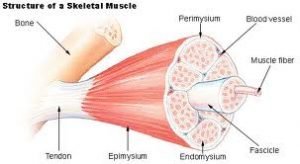
Hopefully, the facts presented have helped you clarify the confusion about protein. To review, here are the key takeaways:
- Protein is so vital for weight loss. Memorize the measuring scale of the thermic effect of food (TEF). More protein = more calories expended.
- There is no “best type” of protein. They all have their strengths, depending on when they are ingested. Just remember to combine incomplete proteins to make them complete if they are your primary source of protein.
- There are a few times that are optimal for protein intake. Immediately after a workout, before going to bed, and especially first thing in the morning upon arising are times to strive for.
- There are no specific amount of grams of protein that will be best for everyone. Our bodies are similar yet different, and therefore we all respond differently. Experiment with various amounts of protein multiple times, keep detailed records of your results and go from there.
- Meet most of your protein needs through food. Meat and dairy are complete proteins but don’t be deterred if these are not on your menu. The intelligent combining of incomplete protein will ensure you can quickly meet your protein requirements.
- Here is a brief guide to help you remember the protein content of food. An ounce of meat or fish has about 7 grams of protein. Eggs contain 6 grams, one cup of milk has 8 grams, ½ cup of cottage cheese contains 15 grams, cheese contains about 10 grams per ounce, most beans contain 7-10 grams of protein per half cup of cooked beans, two tablespoons of peanut butter deliver 8 grams and ¼ cup of almonds provides you with 8 grams.
- Don’t forget to supplement with protein shakes. It can be difficult in the fast-paced world we live in always to eat smartly and correctly. Protein shakes can’t replace protein ingested from food, and they are not intended to. They are referred to as supplements for a reason. However, they are quick, convenient, and deliver protein quickly. This is especially important soon after a strenuous workout. Whey protein is absorbed quickly, so it should be your first choice immediately following your training session. Casein and soy proteins have a slower absorption rate, and therefore have a place on your protein intake menu at other times than right after your workout.
- Don’t forget to stay hydrated. High protein intake can lead to dehydration. The good news is that dehydration is easy to avoid, provided you remember this simple equation: the more protein you ingest, the more water you need to drink.
- Finally, make sure to keep your nutrition well-balanced. This will make sure your body is healthy and can respond beneficially to the increase of the protein that you are delivering to it.
Testosterone Replacement Therapy and adequate protein intake = optimal health and fitness!
Contact us for a FREE, no-obligation discussion of the benefits of testosterone replacement.
References
What are the building blocks of proteins?
Proteins: building blocks of the body
Contact Us Today For A Free Consultation
Dear Patient,
Once you have completing the above contact form, for security purposes and confirmation, please confirm your information by calling us.
Please call now: 1-800-380-5339.
Welcoming You To Our Clinic, Professor Tom Henderson.

- Obese Patients Have a Higher COVID-19 Mortality Risk Than the General Public [Last Updated On: January 30th, 2024] [Originally Added On: August 21st, 2020]
- The Health and Hormone Balancing Qualities of Broccoli [Last Updated On: April 15th, 2023] [Originally Added On: August 27th, 2020]
- What to eat to boost testosterone [Last Updated On: July 18th, 2023] [Originally Added On: December 14th, 2020]
- Breaking a Weight Loss Plateau: How to Reduce Body Fat When Nothing Seems to be Working [Last Updated On: January 22nd, 2024] [Originally Added On: February 16th, 2021]
- The Top 25 Most Nourishing and Sustaining Foods to Add to Your Diet Today for Increased Longevity [Last Updated On: January 19th, 2024] [Originally Added On: February 16th, 2021]
- Fight Inflammation and Osteoporosis with Beets! [Last Updated On: January 17th, 2024] [Originally Added On: February 18th, 2021]
- Break a Weight Loss Plateau with Apple Cider Vinegar [Last Updated On: January 17th, 2024] [Originally Added On: February 20th, 2021]
- An Intriguing Look into How Growth Hormone Production and Fasting are Linked [Last Updated On: January 21st, 2024] [Originally Added On: February 21st, 2021]
- Health Reasons for a Vegan Diet [Last Updated On: August 16th, 2023] [Originally Added On: April 2nd, 2021]
- Leafy Greens are Medicine for Your Gut [Last Updated On: August 2nd, 2023] [Originally Added On: April 23rd, 2021]
- All Praise to the Spud -- the Delicious, Health-Giving Potato, That Is [Last Updated On: April 15th, 2023] [Originally Added On: June 1st, 2021]
- 16 Cancer-Causing Foods to Avoid [Last Updated On: March 16th, 2022] [Originally Added On: August 12th, 2021]
- Longevity and Anti-Aging -- The Use of Flax Seed Oil [Last Updated On: January 10th, 2024] [Originally Added On: August 17th, 2021]
- Essential Amino Acids Critical to Health and Hormone Balance [Last Updated On: April 7th, 2023] [Originally Added On: October 6th, 2021]
- Growth Hormone and Calcium [Last Updated On: January 12th, 2024] [Originally Added On: October 16th, 2021]
- Growth Hormone and Coffee [Last Updated On: January 7th, 2024] [Originally Added On: October 19th, 2021]
- Testosterone, Growth Hormone, and Sugar. [Last Updated On: January 9th, 2024] [Originally Added On: October 19th, 2021]
- Testosterone, Growth Hormone, and Processed Meat [Last Updated On: January 1st, 2024] [Originally Added On: October 19th, 2021]
- Growth Hormone and Intermittent Fasting [Last Updated On: December 27th, 2023] [Originally Added On: October 19th, 2021]
- Growth Hormone and the Importance of Nutrition [Last Updated On: December 30th, 2023] [Originally Added On: October 20th, 2021]
- Growth Hormone Stops Inflammation! [Last Updated On: December 31st, 2023] [Originally Added On: October 20th, 2021]
- Growth Hormone and Sugar Addiction [Last Updated On: December 21st, 2023] [Originally Added On: October 20th, 2021]
- Growth Hormone and Red Meat [Last Updated On: December 23rd, 2023] [Originally Added On: October 20th, 2021]
- Boost Growth Hormone with Sleep [Last Updated On: March 16th, 2022] [Originally Added On: October 20th, 2021]
- A Natural Acid Found in Apples Prevents Muscle Loss AKA Sarcopenia [Last Updated On: January 11th, 2024] [Originally Added On: October 20th, 2021]
- Growth Hormone and Organic Foods. [Last Updated On: December 19th, 2023] [Originally Added On: October 21st, 2021]
- Growth Hormone and Acidosis [Last Updated On: December 24th, 2023] [Originally Added On: October 21st, 2021]
- Growth Hormone Food Choices [Last Updated On: December 18th, 2023] [Originally Added On: October 21st, 2021]
- Growth Hormone and Cholesterol: the Surprising Link [Last Updated On: December 26th, 2023] [Originally Added On: October 22nd, 2021]
- Growth Hormone and Weight Loss [Last Updated On: December 20th, 2023] [Originally Added On: October 22nd, 2021]
- Growth Hormone Reduces Inflammation [Last Updated On: December 22nd, 2023] [Originally Added On: October 24th, 2021]
- What You Eat Impacts Both Your Sleep AND Your Growth Hormone Production [Last Updated On: January 11th, 2024] [Originally Added On: October 24th, 2021]
- Growth Hormone Lowers Blood Sugar [Last Updated On: December 25th, 2023] [Originally Added On: October 24th, 2021]
- Testosterone and Magnesium [Last Updated On: April 28th, 2022] [Originally Added On: April 28th, 2022]
- The Beneficial Functions of Brown Fat vs. White Fat [Last Updated On: June 24th, 2022] [Originally Added On: May 3rd, 2022]
- MOTS-c Peptide for Weight Loss and Muscle Building [Last Updated On: April 7th, 2023] [Originally Added On: November 7th, 2022]
- Looking to lose weight? Add this ingredient to meals [Last Updated On: August 1st, 2023] [Originally Added On: December 7th, 2022]
- The many health benefits of black tea [Last Updated On: August 1st, 2023] [Originally Added On: December 13th, 2022]
- Raw Food Benefits [Last Updated On: August 1st, 2023] [Originally Added On: January 18th, 2023]
- Brain Foods that Work Together with HGH to Improve Mental Sharpness [Last Updated On: March 9th, 2024] [Originally Added On: March 9th, 2024]
